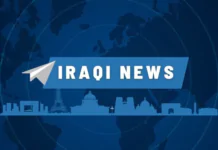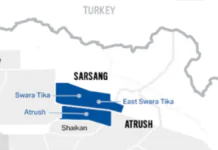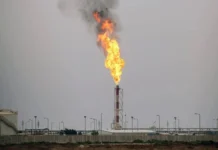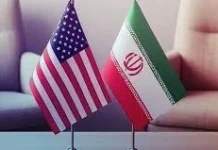Representative: Washington Controls Iraqi Financial Transfers And Hinders Economic Independence
Economy | 06:49 – 12/10/2025 Mawazine News – Baghdad – Member of Parliamentary Finance, Moeen Al-Kadhimi, confirmed today, Sunday, that the United States of America imposes direct control over financial transfers in Iraq, which restricts the country’s ability to conduct its banking transactions freely and independently, noting that Washington is exploiting this issue to serve its political and economic interests.
Al-Kadhimi said in a statement, “The United States is still exerting pressure on the Central Bank of Iraq through the SWIFT financial transfer system, which prevents Iraq from dealing freely with a number of countries and negatively affects the movement of the national economy.”
He added, “Washington is exploiting this system as a tool for political pressure, controlling the access of funds to a number of sectors and imposing restrictions on foreign transfers, especially those related to trade and imports.”
Al-Kadhimi indicated that “Iraq does not yet enjoy full financial sovereignty due to these interventions that serve American interests without taking into account the needs of the Iraqi market or the requirements of the country’s economic security.” https://www.mawazin.net/Details.aspx?jimare=268310
The exchange rate continues to stabilize in Baghdad.
Economy | 10:56 – 12/10/2025 Mawazine News – Baghdad – The dollar exchange rate witnessed remarkable stability against the dinar in local markets in the capital, Baghdad, on Sunday. The selling price reached 142,550 dinars per $100, while the buying price reached 140,500 dinars per $100. https://www.mawazin.net/Details.aspx?jimare=268284
Iraq’s Oil Exports To The US Rise
Economy | 10:19 – 12/10/2025 Mawazine News – Follow-up The US Energy Information Administration announced, on Sunday, an increase in Iraqi oil exports to the United States during the past week.
The administration said that “US crude oil imports during the past week from 10 major countries averaged 5.530 million barrels per day, an increase of 317,000 barrels per day compared to the previous week, which averaged 4.847 million barrels per day.”
It added that “Iraq’s oil exports to the United States averaged 135,000 barrels, an increase of 127,000 barrels per day compared to the previous week, which averaged 8,000 barrels per day.”
The administration also indicated that “the largest oil revenues to the United States during the past week came from Canada, at an average of 3.600 million barrels per day, followed by Al-Masbak, at an average of 494,000 barrels per day, from Libya, at an average of 225,000 barrels, and from Nigeria, at an average of 219,000 barrels per day.”
According to the administration, “US crude oil imports from Brazil averaged 210,000 barrels per day, from Saudi Arabia 195,000 barrels per day, from Venezuela 194,000 barrels per day, from Ecuador 187,000 barrels per day, and from Colombia 71,000 barrels per day.” https://www.mawazin.net/Details.aspx?jimare=268283
The Central Bank Begins The Actual Implementation Of The Comprehensive Banking Reform Project.
Buratha News Agency1872025-10-12 The Central Bank’s actions and efforts, in partnership and consultation with private banks, have been fruitful in facilitating the implementation of the objectives, programs, mechanisms, and standards of the comprehensive banking reform project. This was achieved in collaboration with the government and the global consulting firm Oliver Wyman, as well as the objectives and initiatives of its third strategy.
The primary objective is to build a robust, modern, inclusive, and flexible banking sector that drives rapid growth for the national economy and contributes to achieving a cumulative increase in the gross domestic product and growth in the banking sector’s market value.
Given that economic reform begins with banking reform, the challenges facing the Iraqi economy and the opportunities for reform in the banking and financial sector are highlighted in the government’s program.
The Central Bank’s future vision for the banking sector’s role in achieving sustainable development and investment is also highlighted, as are the current efforts to activate and revolutionize productive non-oil economic sectors to diversify sources of national income, achieve financial sustainability, and accelerate economic growth.
The Central Bank’s role in regulating foreign trade financing, completing infrastructure projects to achieve comprehensive digital transformation, and expanding the use of electronic payment tools to achieve financial inclusion are also highlighted.
It will contribute to providing opportunities for reform, development, empowerment, and growth of the private banking sector during 2025-2028, as follows:
First: Developing the Iraqi banking system and its compliance with international banking and accounting standards.
Second: Building a sound, modern, comprehensive and flexible banking sector.
Third: Enhancing citizens’ confidence in the banking sector locally, and achieving international recognition of its transparency, progress, and strict adherence to international standards, as well as gaining the trust of reputable correspondent banks to deal with it.
Fourth: Rehabilitating restricted and weak banks to return to activity in the banking market with full internal and external activities.
Fifth: Transforming banks to their primary function, which is financing and bank lending for development, and enhancing financial inclusion and increasing its current rate as planned.
Sixth: Strengthening the procedures and decisions for the transition from a cash economy to a digital economy, withdrawing funds outside the banking cycle, which constitute approximately 80%, and introducing them into the banking system.
Although the period specified for its implementation according to the banking reform project and the Central Bank strategy is three years, what was achieved in 2023 and 2024 until June 30, 2025 in terms of building foundations, rules and pillars that formed a supporting pillar in building the mechanisms and paths of the desired reforms, and they constitute ambitious percentages, as announced, which will lead to the evaluation and classification of banks based on their achievement of the planned objectives in the reform project according to the internationally approved standards and criteria. https://burathanews.com/arabic/economic/466400
Banks Economy News – Baghdad Saleh Mahoud, the Prime Minister’s advisor for banking affairs, confirmed on Saturday that the Central Bank is working on three strategic projects for financial transformation.
In a press statement, followed by Al-Eqtisad News, Mahoud said, “The Central Bank is currently working on three very important projects that will propel Iraq to important and advanced levels.” He noted that these projects are the local electronic card, rapid payment, and the billing system.
He added, “The Central Bank now has timelines for completing these three projects in order to achieve a shift in financial inclusion to greater and greater levels,” noting that “Iraq often benefits from global experiences, especially in the financial sector and digital transformation.” https://economy-news.net/content.php?id=60998






